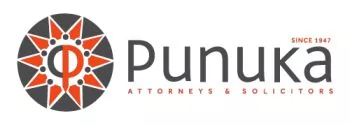1 Relevant Authorities and Legislation
1.1 Who is/are the relevant merger authority(ies)?
The apex regulatory institution in relation to merger control is the Securities and Exchange Commission ("SEC"). SEC was established by section 1 of the Investment and Securities Act 2007 ("ISA") CAP I24 LFN 2004. SEC performs an all-pervasive role in merger control in Nigeria. It receives pre-merger notifications, formal applications and gives approvals before any merger can be completed. It also ensures that all post-merger requirements are met.
The Corporate Affairs Commission ("CAC") established by the Companies and Allied Matters Act 1990 ("CAMA") CAP C20 LFN 2004 also has a part to play with respect to corporations that intend to merge. It is its responsibility to receive corporate filings and to certify corporate resolutions and de-registration of any dissolved companies that may occur in the merger process.
The Nigerian Stock Exchange is worth mentioning as quoted companies need to meet the listing rules on merger transactions. Listed companies are required to submit to the exchange drafts of all circulars issued by the company to its shareholders; they are also required to disclose any conflict of interest issues between directors of merging companies. In addition, a listed company may have to be delisted as a result of a merger.
The Federal High Court ("FHC") also acts as a relevant authority in merger control. Section 251 of the 1999 Constitution of the Federal Republic of Nigeria gives this court the power to handle matters with respect to companies' operation, management and regulation. This court makes orders for shareholders' meetings to consider the merger scheme. The FHC also sanctions the merger scheme.
There is a pending Federal Competition and Consumer Protection Bill. The Bill makes provision for the creation of the Federal Competition Commission ("FCC"). This commission will act as a competition regulator empowered to prevent and punish anti- competitive practices, regulate mergers, takeovers and acquisitions, and protect regulated industries in every sector and location in Nigeria. It also proposes the creation of a competition tribunal to deal with any disputes and concerns which may arise.
1.2 What is the merger legislation?
The key merger legislation is the Investment and Securities Act 2007("ISA") CAP I24, LFN, 2004 and the rules made pursuant to it, the "SEC Rules and Regulations 2013".
1.3 Is there any other relevant legislation for foreign mergers?
There is no other legislation in respect of foreign mergers than the Investment and Securities Act stated in question 1.2 above.
The Act subjects every merger (which means both local and foreign) to prior review and approval by SEC. The Act provides for three kinds of mergers (small, intermediate and large); the kind of merger the foreign company contemplates having will decide whether notification to SEC is voluntary or mandatory.
Rule 427 of the 2013 SEC Rules provides for the threshold for these mergers. It puts the lower threshold for a small merger below N1,000,000,000 (one billion Naira) and an intermediate merger is between N1,000,000,000 (one billion Naira) and N5,000,000,000 (five billion Naira), while a large merger is above N5,000,000,000 (five billion Naira). The determination of these thresholds is calculated by either combined assets or turnover or a combination of both assets and turnover in Nigeria.
SEC's main interest is in determining whether or not a merger is likely to substantially prevent or lessen competition. To resolve this, SEC shall assess the strength of the competition in the relevant market and determine whether the success of the merger will be competitive or co-operative, taking into account any factor that is relevant to competition in the market including the actual and potential level of imports in the market.
Also, in terms of the definition of a merger under the ISA, change of control is a relevant factor and a person is said to control a company if that person beneficially owns more than one half of the issued capital of the company, or is a holding company and the company is a subsidiary of that company, etc. Consequently, foreign mergers with no impact whatsoever in the Nigerian market may require no notification to SEC. On the other hand, where a foreign merger would have significant impact on the Nigerian market or where it will result in change of control of the Nigerian subsidiary, it may be necessary to notify SEC. It should be noted also that where a foreign merger will result in the merger of two or more of their Nigerian subsidiaries, compliance with ISA in terms of merger notification and approval will apply to the local consequential transaction.
The time frame for obtaining clearance is not stipulated by the rules, however foreign companies intending to go through a merger process that will affect the market in Nigeria should use their discretion in giving themselves ample time to apply for clearance from the Nigerian regulators before implementing the merger in Nigeria, as required by law. Failure to do this may cause SEC to break up the merger or levy heavy fines for acts contrary to those stated in the law.
However, the FCC Bill has clearer provisions with respect to foreign mergers. In terms of scope, the Bill is made to apply to all economic activities within or having effect within Nigeria. The Bill also contains provisions extending its application to conduct (including acquisitions of assets or shares of businesses outside Nigeria) by a person who is resident or who carries on business in Nigeria, to the extent that such conduct substantially affects a market in Nigeria which to a large extent covers foreign mergers.
1.4 Is there any other relevant legislation for mergers in particular sectors?
The ISA is the major legislation on mergers, acquisitions and takeovers in Nigeria. However, mergers, acquisitions and takeovers involving organisations in regulated industries are also subject to the provisions of the various sector legislations. Most often, those legislations would require the organisations to obtain approval/or no objection from the relevant authority in any proposed merger or acquisition. Indeed, the SEC Rules and Regulations 2013 PART I dealing with Mergers, Takeovers and Acquisitions require a non- objection letter from the company's regulator as part of the documents to be submitted at the pre-merger notice level. The legislation below is therefore noteworthy:
Banking Industry – The Central Bank of Nigeria ("CBN") regulates bank mergers pursuant to its powers under: the Banks and Other Financial Institutions Act 1991 (as amended); the Central Bank of Nigeria Act 1991 (as amended); and the Procedures Manual for Applications for Bank Mergers/Take-overs 2004 (as updated) published by the CBN. The Manual gave effect to the provisions of the CBN Guidelines and Incentives on Consolidation in the Nigerian Banking Industry, issued on 5 August 2004. The CBN Manual of 2004 provides for stages of approval from the CBN as follows:
- Pre-merger – this represents the Central Bank of Nigeria's preliminary consent to the banks wishing to merge, stating that it has no objection to the merger. The preliminary consent will form a basis for the merging banks to forward an application for merger to SEC.
- Approval-in-Principle – this represents the Central Bank of Nigeria's conditional approval of the proposed merger or takeover.
- Final Approval – this is given after the merger or takeover has been approved by SEC. Upon obtaining final approval, the successor bank in the case of a merger will be issued a new banking licence.
Electricity Sector – Electric Power Sector Reform Act 2005
In line with its regulatory function of promoting competition and preventing abuse of market power in the electricity sector, the Nigerian Electricity Regulatory Commission ("NERC"), pursuant to section 82(5) of the Act, has the power to make a decision on whether or not to approve a merger or acquisition in the Nigerian power sector.
Insurance Industry – The National Insurance Commission Act 1997, CAP N53 LFN 2004
The Nigerian Insurance Commission has regulatory oversight of insurance business in Nigeria and, as such, its consent or non- objection is also required in the case of any proposed merger involving an insurance company. The National Insurance Commission ("NAICOM") requires a public advert directed at policyholders before its approval of any merger or business combination.
Telecommunications – The Nigerian Communications Act No 19 2003 CAP N97 LFN 2004
The Nigerian Communications Commission ("NCC") has regulatory oversight over the telecommunications industry in Nigeria and has made a regulation in this regard: "The Competition Practices Regulations 2007". These regulations provide a framework for the promotion of fair competition in the communications sector, and creates standards and procedures which will assist the NCC in determining anti-competitive conduct by licensed entities. As such, necessary approval must be obtained and necessary notifications must be given to the NCC regarding proposed mergers involving such licensed companies in the communications industry. The NCC gives a maximum of sixty (60) days for such notification and responds within a thirty (30) day time frame. It may approve, approve with conditions, deny or initiate an inquiry or any other public proceeding regarding the merger or proposed transaction. The regulation gives the NCC the right to review procedures for the acquisition of more than 10% of the shares of a licensed company, and transactions that may result in change of control or direct/indirect transfer of acquisitions in a licensed company in the communications industry. Where there is a breach of any of these rules, the NCC has the power to levy heavy sanctions or any other penalties in its Enforcement Process Regulation 2005.
Oil and Gas – Petroleum Act [1969] now 2004 CAP P10 LFN 2014 & Petroleum Industry Bill ("PIB")
The regulations made under the Petroleum Act require the consent of the Minister to a change of control of the holder of an oil licence or asset. The PIB, which is a proposed unified legal framework for the petroleum sector in Nigeria, provides that where a licensee, lessee or production sharing or service contractor is taken over by another company or merges with or is acquired by another company either by acquisition or exchange of shares including a change of control of a parent company outside Nigeria, it shall be deemed to be treated as an assignment within Nigeria and shall be subject to the terms and conditions of the proposed Act and any regulations made under it. The Act provides that such an assignment shall require the consent of the Minister of Petroleum Resources and further provides the conditions for the granting of the Minister's consent to such assignments
Download - The International Comparative Legal Guide To: Merger Control 2015
The content of this article is intended to provide a general guide to the subject matter. Specialist advice should be sought about your specific circumstances.



